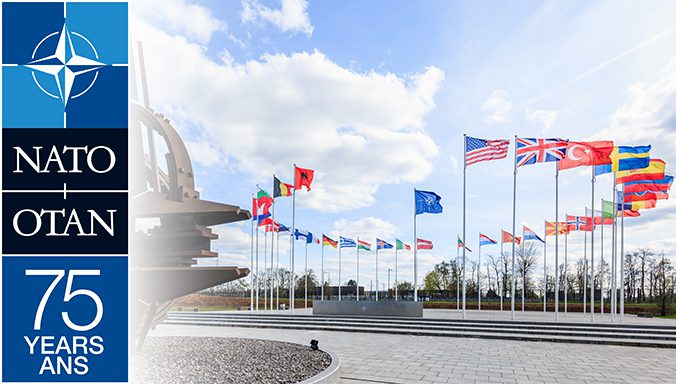This should be a time of joy for the world’s strongest military alliance as the North Atlantic Treaty Organization celebrates its 75th birthday this week. However, it's not a time for celebration due to the many unknowns in the coming months.
The future of NATO and its perceived security role in today's geopolitical landscape are important points of discussion.
NATO must consider a long-term plan for its future actions as the Ukraine-Russia war continues without signs of improvement. Another critical issue is whether NATO is still useful.
Many people predict that the outcome of the upcoming US presidential election in early November will have a big impact. If former president Donald Trump is elected, NATO's future will be in a precarious situation.
He has repeatedly said that the US will withdraw from the alliance, which it played a key role in founding after World War II.
Its primary purpose was and still is to contain Russian influence. The failure of NATO is evident in Europe today.
During a meeting in Brussels on Wednesday, NATO foreign ministers agreed that it's time for NATO to rely less on US military support for Ukraine.
The US Congress has blocked the Biden administration's plan to provide $60 billion of military aid to Ukraine.
Efforts to pass this controversial bill continue. As President Volodymyr Zelensky has emphasized, a prolonged delay will mean that the Ukrainian armed forces will face defeat due to a lack of ammunition.
NATO is now preparing to directly engage with Russia beyond its current scope. French President Emmanuel Macron even suggested the possibility of sending troops.
The reality in Europe is straightforward—there is a direct confrontation between NATO and Russia.
Given this trajectory, a direct war is inevitable due to the increasing funding needed to sustain the war until Ukraine can achieve victory or be in a stronger negotiating position. This process will take years.
When NATO leaders convene in Washington DC in July for a summit, they will have a great opportunity to assess their role. If NATO intends to combat the Russians and limit their influence, it would be a futile effort.
After 75 years, Russia remains a crucial security and strategic factor that Europe cannot ignore. Involving Russia in the broader European community, even on a surface level, is a much better approach.
For the military enthusiasts, without real or imagined enemies, alliances like NATO will lose their purpose.
This is why various strategic partnerships are becoming more prevalent today, as they are better suited to the current security circumstances. They address all issues that would bolster peace and stability.
NATO's expansion and support for Ukraine will further jeopardize Europe. Already, Europeans are suffering due to the isolationist efforts and sanctions by the West against Russia.
It's clear that Russia's actions in global politics and its invasion of Ukraine should not be supported.
However, hoping that Russia will be defeated and punished for its actions is unrealistic. Other Western countries have done the same and faced no consequences.
The suggestion of creating an Asian equivalent of NATO, even just a representative office, should be rejected. Expanding NATO to include Asia would threaten the stability and security of the region.
Strategists in Brussels and Washington need to understand that security in Asia can still be handled by Asian powers even as China and India grow in power.
Kavi Chongkittavorn









